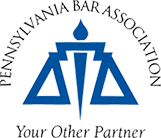It’s always a good idea to safely pull over as soon as you can if you see flashing red and blue lights from a patrol car in your rear-view mirror. If a Pennsylvania police officer thinks you’re trying to speed off rather than appropriately respond to his or her attempt to make a traffic stop, it can wind up making matters worse.
Once you pull off the road, however, you may have to make numerous decisions based on what the officer says and does from that point on. What you say and do can greatly affect your situation, especially if you wind up facing drunk driving charges. If the officer asks you to step out of your vehicle, you can bet he or she suspects you of impaired driving. How well you understand your rights ahead of time may have a significant impact on the ultimate outcome of your situation.
If the officer asks you to take a test
While protocol and various regulations guide a police officer’s actions during a traffic stop, he or she also may use personal discretion to determine various issues, such as whether or not there is probable cause to arrest you. To do so, the officer may request that you take a field sobriety test, a preliminary alcohol screening test or, at some point, a Breathalyzer or other chemical test. The following information may be helpful in such circumstances:
- A preliminary alcohol-screening test is not the same as a chemical Breathalyzer test.
- A mobile breath test used in preliminary investigations simply detects whether or not you have alcohol on your breath.
- A Breathalyzer test can measure the amount of alcohol in your system.
- There are typically three types of field sobriety tests, including the one-leg stand test, the walk-and-turn test and the horizontal gaze nystagmus test.
- Pennsylvania operates under implied consent rules. If you refuse to take a Breathalyzer test, you will incur automatic administrative penalties that will likely include a driver’s license suspension.
- There are no administrative or legal penalties for refusing to take a mobile breath test or for refusing to take field sobriety tests.
You may decide that it would be better to go ahead and take a field test than to refuse and have that fact mentioned in court if you face charges. If an officer threatened you with arrest for your refusal, it would be a violation of your personal rights, protected under the U.S. Constitution.
Things to know about facing DUI charges
Field sobriety tests are not 100 percent reliable. Police officers’ personal assessment of a situation greatly influences whether or not you pass or fail the test. If you have any type of pre-existing condition that would cause you to perform such tests poorly, you should let the officer know that ahead of time, such as an eye condition or difficulty balancing on one leg due to a current or past injury.
If you face charges and believe you have suffered a violation of your personal rights, you can seek support to help you challenge a portion or all of the state’s evidence against you.



